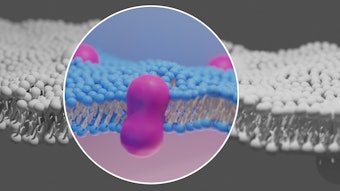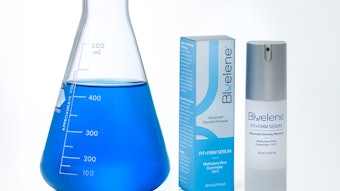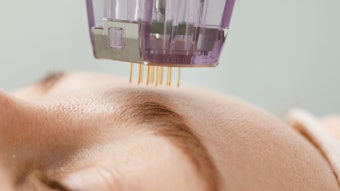
FDA Approves IDP-126 for Acne
The U.S. Food and Drug Administration (FDA) has just approved Ortho Dermalogics' IDP-126 gel formulated with clindamycin 1.2%/adapalene 0.15%/benzoyl peroxide 3.1% for the treatment of patients with acne. This makes IDP-126 gel the first FDA-approved fixed-dose triple-combination gel for patients with acne vulgaris, per reporting from Dermatology Times.
Earlier this year, Ortho Dermatologics announced its New Drug Application (NDA) filing had been accepted by the FDA. based on positive data from phase 2 and 3 randomized and double-blinded clinical trials that assessed the efficacy of IDP-126 gel in patients aged nine years and older with moderate-to-severe acne over 12 weeks.
In the phase 2 trial, more than half (52.5%) of patients treated with IDP-126 gel achieved treatment success as measured by a 2-point or greater reduction from baseline in the Evaluator’s Global Severity Score and clearer skin. In the phase 3 trials, the IDP-126 gel consistently outperformed the vehicle gel in achieving clear or almost clear skin. Patients experienced reductions in both inflammatory and noninflammatory lesions when using the IDP-126 gel.
Most treatment-emergent adverse events reported by patients were mild or moderate and IDP-126 was well-tolerated among participants.
Related: New Med Spa Federal Business Requirements + Updated State Guidelines on IV Therapy
FDA to Require Changes to iPLEDGE Program for Isotretinoin Treatments
The FDA agreed to require the American Academy of Dermatology's (AAD) recommended changes to the iPLEDGE program for isotretinoin treatment safety that will "reduce administrative burdens for dermatologists and help patients get access to treatments in an easier manner," according to AAD president Terrance A. Cronin, Jr., M.D., FAAD.
The iPLEDGE REMS is a safety program to manage the risk of isotretinoin’s teratogenicity and to minimize fetal exposure. The REMS is required by the U.S. Food and Drug Administration (FDA) to ensure the benefits of isotretinoin outweigh its risks.
Some of the changes to the program include removing waiting period requirements for patients who do not obtain isotretinoin within the first seven-day prescription window and the allowance of pregnancy tests outside of a CLIA-certified laboratory.
The isotretinoin manufacturers will be required to implement these changes six months from the date of the FDA's letter. Then, the FDA has six months to review and approve the changes. Once approved, the isotretinoin manufacturers will need time to implement the changes. Therefore, these changes may take up to a year or more to be implemented fully. The AADA has already requested to participate in the next phase of this process.
Related: Cutera's AviClear Receives Additional FDA Clearance
"Because of the AAD's relentless advocacy over two years, the FDA has finally agreed to require much-needed changes to the patient safety program known as iPLEDGE for isotretinoin treatment," said Cronin, Jr. "The FDA supported the AADA's critical recommendations that include allowing for continued use of at-home and non-CLIA pregnancy tests."
The AAD has been fighting for changes since the FDA transitioned to a new iPLEDGE platform in 2021 that malfunctioned and disrupted treatment for many patients. AAD's strong advocacy, led by its iPLEDGE Workgroup, including testifying during an FDA hearing in March, convinced the FDA to require modifications to the iPLEDGE REMS to minimize burdens on patients and dermatologists while maintaining the safe use of isotretinoin.
The FDA will require the Isotretinoin Product Manufacturers Group (IPMG) to implement the following changes to the iPLEDGE REMS:
- Remove the waiting period requirement (also referred to as the "19-day lockout") for patients if they do not obtain isotretinoin within the first 7-day prescription window. Before initiating isotretinoin treatment, a repeat confirmatory pregnancy test must be completed in a medical setting (as described above) without any required waiting period.
- Revise the pregnancy registry requirement to remove the objective to document pregnancy and fetal outcomes (and associated data collection) for each pregnancy.
- Revise the requirement for prescribers to document patient counseling in patients who cannot become pregnant from monthly to only at enrollment.
- Remove the requirement that pregnancy tests must be performed in a CLIA-certified laboratory; however, all pregnancy testing before isotretinoin treatment initiation must be completed in a medical setting. Allow prescribers the option of using home pregnancy testing for their patients during and after isotretinoin treatment. Prescribers who rely on the patient to perform a home pregnancy test need to take steps to minimize patients falsifying the results of these tests.
More: American Academy of Dermatology Updates Guidelines for Management of Adults with Atopic Dermatitis











